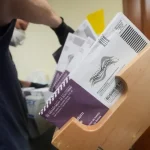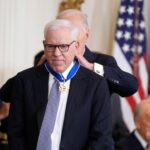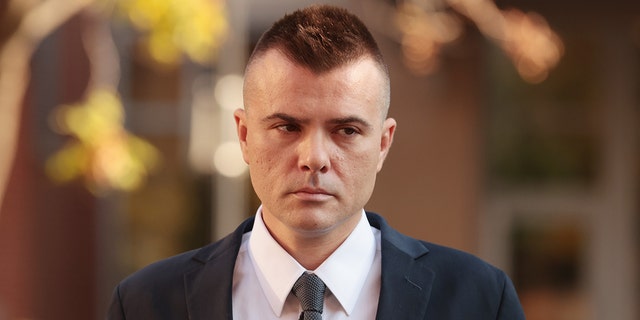
Neither the FBI nor any other intelligence agency had any corroboration for allegations included in the anti-Trump dossier that was used to justify the Foreign Intelligence Surveillance Act warrant and its renewals to monitor Trump campaign aide Carter Page, an FBI official testified on the second day of the Igor Danchenko trial.
Special Counsel John Durham, who has been investigating the origins of the Trump-Russia probe since 2019, led questioning of FBI supervisory counterintelligence analyst Brian Auten on Tuesday, the first day of the trial, and continued on Wednesday.
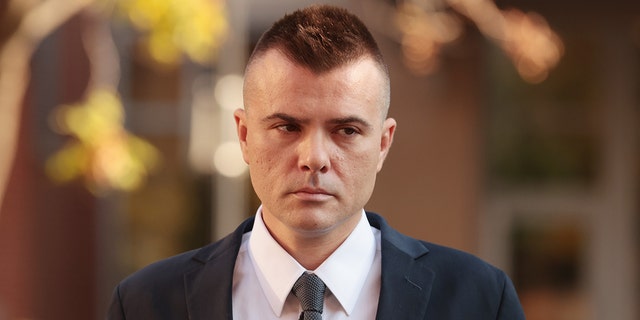
Russian national Igor Danchenko (Chip Somodevilla/Getty Images)
Auten was the first witness in the trial of Danchenko, the Russian national who served as the primary sub-source for ex-British Intelligence agent Christopher Steele’s anti-Trump dossier and has been charged with five counts of making false statements to the bureau.
DURHAM PROBE: FBI OFFERED CHRISTOPHER STEELE $1 MILLION TO CORROBORATE TRUMP ALLEGATIONS IN DOSSIER
When pressed on whether the FBI had any way to corroborate the salacious allegations against Trump and his campaign associates included in the dossier, Auten repeatedly said no.
Durham hammered Auten Wednesday, questioning why he took information from the dossier, without corroboration, and included it in the FISA warrant for Page.
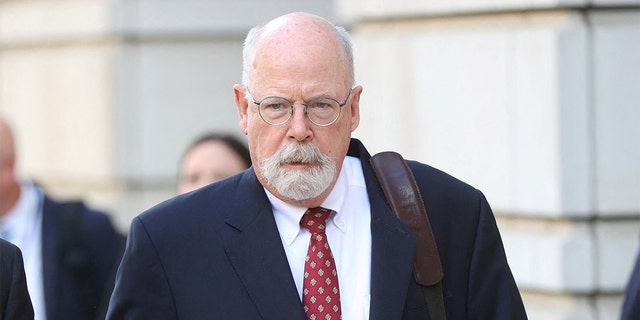
The jury found that Special Counsel John Durham’s team had not proven beyond a reasonable doubt that Sussmann’s statement was a lie. (Reuters/Julia Nikhinson)
“As an analyst, I’m not writing the application,”Auten testified.
But Durham continued to press him, saying: “You and your colleagues took the information…and put it in the Carter Page FISA application.”
“You didn’t have corroboration from FBI databases, from other intelligence community agencies, or from Christopher Steele and it still went into a FISA application?” Durham asked.
“Correct,” Auten testified.
The back-and-forth came after Auten’s testimony on Tuesday, when he revealed that he and a group of FBI agents went overseas in early October 2021 to speak with Steele about the dossier.
DURHAM PROBE: GOVERNMENT SAYS US SURVEILLED CARTER PAGE FOR MORE THAN A YEAR BASED ON DANCHENKO LIES
Auten said that during an overseas meeting, the FBI offered Steele $1 million if he could corroborate allegations in the dossier. Auten testified that Steele could not do so.

Christopher Steele, a former British spy who wrote a 2016 dossier about alleged links between Donald Trump and Vladimir Putin, arrives at the High Court in London for a hearing in the libel case brought against him by Russian businessman Aleksej Gubarev. (Photo by Aaron Chown/PA Images via Getty Images)
Auten also said Tuesday that the FBI had no corroboration of allegations in the dossier but nevertheless took that information and inserted it into the FISA warrant to surveil former Trump campaign aide Carter Page.
“On October 21, 2016 [the date of the Carter Page FISA application], did you have any information to corroborate that information?” Durham asked.
“No,” Auten said, confirming that the FBI began receiving Steele’s reports, later known as the dossier, on Sept. 19, 2016, and submitted its first FISA application on Page on Oct. 21, 2016.
Sept. 19, 2016, was also the day that then-Clinton campaign lawyer Michael Sussmann brought white papers to a meeting at FBI headquarters with then-FBI General Counsel James Baker that alleged the Trump Organization was using a secret back channel to communicate with Kremlin-linked Alfa Bank in the weeks leading up to the presidential election.
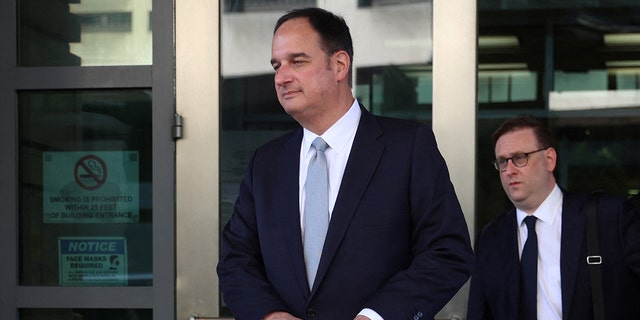
The mainstream media has largely avoided covering the trial of ex-Clinton campaign lawyer Michael Sussmann, who has been charged with making a false statement to the FBI. (Reuters/Julia Nikhinson)
Sussmann was found not guilty of making a false statement to the FBI in June. Sussmann had allegedly brought the information to Baker on Sept. 19, 2016, and he allegedly claimed that he was not doing work on behalf of any client but rather bringing the data as a citizen concerned with national security.
But the Steele dossier, which was commissioned by opposition research firm Fusion GPS and paid for by the Hillary Clinton campaign and the Democratic National Committee through Sussmann’s law firm Perkins Coie, served as the basis for the FISA warrants against Page.
DOJ Inspector General Michael Horowitz in 2019 said the dossier was used to justify the initial FISA warrant and its three subsequent renewals. Republicans on the House Intelligence Committee first said that the dossier served as the basis for those warrants and surveillance of Page.
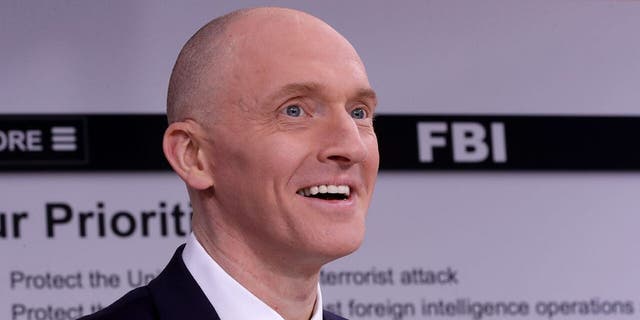
Former Trump adviser Carter Page. (Photo by Chip Somodevilla/Getty Images)
The Justice Department admitted in 2020 that the FISA warrants to surveil Page, when stripped of the FBI’s misinformation, did not meet the necessary legal threshold and never should have been issued.
The charges against Danchenko stem from certain statements he made to the FBI relating to the sources he used in providing information to an investigative firm in the United Kingdom related to the dossier.
Danchenko pleaded not guilty last year to lying about the source of information that he provided to Steele for the dossier, which contained salacious and now-debunked allegations against Trump.
Durham, during questioning, pointed out that Auten’s role in the FBI’s original Trump-Russia investigation, known within the bureau as Crossfire Hurricane, landed him a suspension.
“That’s under appeal,” Auten said.
Fox News’ David Spunt and Niko Stines contributed to this report.





